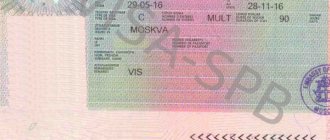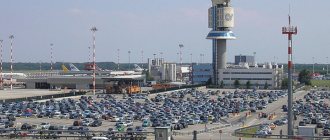In our turbulent, fast-paced age, many people have to change their homes to others that are more suitable for economic, environmental, moral and other reasons.
Increasingly, people are leaving their homes due to the political situation or the low economic development of the region. These are the two main reasons for the migration process.
Next, we will consider this phenomenon in more detail and try to understand how an emigrant differs from an immigrant, as well as what is the difference between emigration and immigration.
Migration concept
Population migration is a move from one habitat to another, which results in the crossing of border lines, both external and internal. This is done mainly with the aim of improving the standard of living. Such citizens are called by the general concept “migrants”, who, in turn, are called emigrants and immigrants.
Migration can be external (interstate) and internal, implying movement for a long stay from one region of the country to another, or a change from a rural lifestyle to an urban one.
The main reason for internal migration is: acquiring a new job (including seasonal), the desire to find a better place for yourself and your family. This type of relocation is common in countries with vast areas.
But the core reason for interstate migration is the economic factor: a significant difference in the amount of monthly remuneration paid for work performed. A specialist of the highest category leaves for a country where they pay more for a similar specialty.
The demographic and economic spheres of the state depend on the ongoing migration “maneuvers”.
What is migration
Migration in demography is the process of moving people from one place to another for any reason. At the same time, people who change their place of residence are called migrants.
In sociology and demography, there are different interpretations of this term, but most often it means that migration is carried out by people within one state (such migration is also called internal).
It should be understood that this term is also used in some other sciences, but even there it means approximately the same thing.
For example, in ornithology, migration is the movement of birds from one place to another for some reason (most often, within the framework of this science, seasonal migration is considered, when birds fly from one place to another due to changes in climatic conditions, but there are other types of migrations ).
Most often, people migrate from one place to another for the following reasons:
- Getting an education (university or school).
- Completion of military service (fixed or contract).
- Employment (for obvious reasons, people most often migrate to the capital and large cities).
- Deterioration of living conditions (lower wages, deterioration in the quality of medical care, environmental problems, and so on).
- Ethnic conflicts (typical of unstable societies with a high level of social tension).
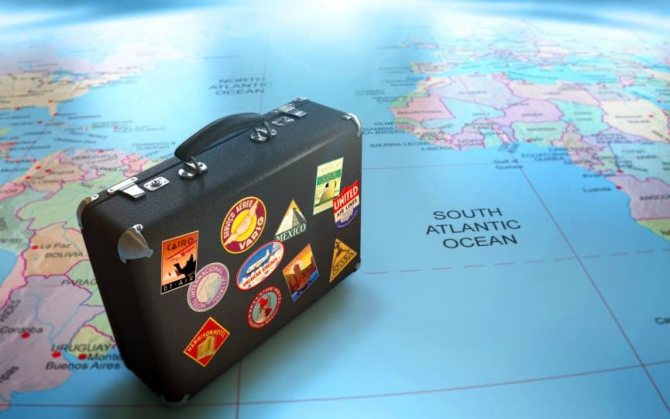
It should be understood that the Constitution and laws of the Russian Federation state that any citizen has the right to freely choose his place of residence without any restrictions.
In fact, this means that migration in Russia is completely legal. However, you need to remember that in fact in Russia there are still certain restrictions on migration:
- If a person moves, he or she must notify the Migration Service of the change in place of residence. To change your registration, a person must visit the passport office, the Federal Migration Service or the MFC and submit documents for re-registration. A permanent (if a person will live in a new place for a long time) or temporary (if a person returns back after some time) registration can be issued, depending on how long he will live at the new place of residence.
- There are some cases when a person's right to freely choose his place of residence may be limited. The most striking example is living in closed cities with a special operating regime (most often, secret developments are carried out in such cities, which constitute a state secret of the country). There are also other cases when the choice of place of residence may be limited - the use of houses in disrepair as housing, the use of illegal housing, and so on.
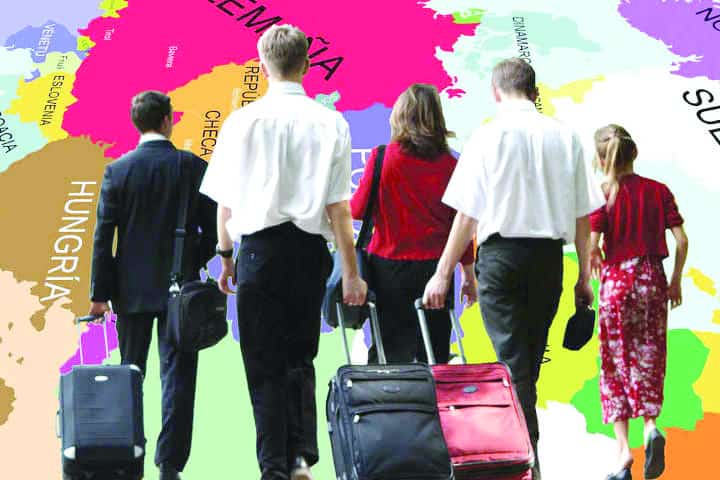
Who are emigrants and immigrants?
What are emigration and immigration, what are their fundamental motives? Both of these concepts are an integral part of the migration process. But who are emigrants and immigrants?
An emigrant is a person who leaves his homeland for permanent residence or very long-term residence within another state.

The key points in a citizen’s decision to leave their country forever are the following:
- a significant difference in the amount of salary for performing the same work in different countries (this is especially true for professionals in their field, who do not receive due recognition in their homeland);
- the presence of a threat to life for the applicant for resettlement and his family members: wars, ethnic strife, economic collapse, natural disasters, etc.;
- obtaining a decent education outside of your home country.
This is where the essence of the difference between migrants is revealed: the motivational reasons for changing their area of residence.
The key difference for expats is to find the best for themselves and their family.
Upon arrival in another state, the migrant is required to perform certain actions:
- register with the migration register of citizens;
- accept another citizenship or obtain a residence permit in the chosen country.
It is very important for migrants to comply with the migration regime of another state, which will help them avoid unnecessary difficulties and problems with the law enforcement base.
An immigrant is a person who entered the territory of another state or region within his country for continuous stay there.
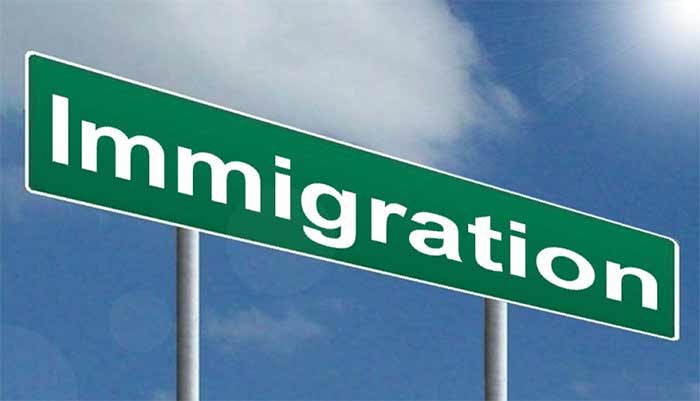
Having carefully studied the concepts of these two migration concepts, we can conclude: what is the difference between an emigrant and an immigrant. The difference between these definitions is visible in the direction of the movement “to leave” and “to enter,” but a migrant can have both statuses. In relation to the former state, a person will be an emigrant, and in relation to the acquired one - an immigrant. This is the importance of migration and the differences between migrants.
Immigration
The concept of immigration refers to entering a country for various reasons. It differs from emigration in the opposite direction of action. The difference is that an emigrant goes abroad, and an immigrant is someone who came for permanent residence for a specific purpose.
Immigration is widespread for a number of reasons.
- Differences in living standards between states.
- Availability of additional economic opportunities in another country.
- A chance of good employment and decent wages.
- Lack of work in your country.
- Receiving a quality education and having pathways for growth and development.
- Disasters, hostilities and persecution in the country of origin.
A common reason for going abroad for permanent residence is family reunification. On this basis, it is much easier to obtain citizenship in a new place. Like emigration, immigration does not automatically grant the right to change citizenship.
The reasons for these two concepts intersect in a number of ways, but this does not stop them from having diametrically opposed meanings. When preparing a package of papers for obtaining permanent residence or permanent residence, it is worth understanding what the difference is between them in order to approach the issue correctly.
What forces people to emigrate?
People emigrate for reasons of dissatisfaction with the internal processes occurring in the field of socio-economic, moral and demographic innovations of a particular state territory. Fear for your own life and the lives of people close to you is also an excuse for leaving your homes. Dissatisfaction with the environment and the inability to fulfill vital needs are the core aspects of motivation that push the decision to leave the homeland.
Any state may face mass relocation beyond its borders or internal migration. In migration policy, what is happening is called emigration and immigration and is subject to scrupulous study. Then, based on the results obtained, the top government tries to make the necessary changes in many areas of the country’s way of life to reduce the adverse consequences of emigration.
Reasons why people decide to migrate
There can actually be many reasons for moving from one country to another. One person can be guided by several at once when deciding to leave their home. Among the most common ones, it is customary to highlight:
- military conflicts occurring on the territory of the native state;
- the possibility of marriage with a representative of another country;
- moving to relatives;
- fleeing the country for social, ethnic or political reasons;
- climate change - due to health conditions or individual preferences;
- educational opportunity;
- searching for a job or wanting to satisfy your professional ambitions;
- escape from areas with unfavorable environmental conditions;
- the desire to radically change your life;
- escape from the old social environment.
You can move to another country either by invitation (for example, when starting a new job or under an exchange program in higher education institutions) or at your own request. A lot of people move from poorer regions in the hope of finding good work and providing for themselves and their families. Thus, most migrants come to Russia from the former CIS countries, hoping to improve their quality of life in large cities, where the number of jobs is much greater than in their native states.
And the same processes still occur - emigration and immigration. People leave their country, becoming emigrants for it, and already in Russia - immigrants.
What is the difference between emigration and immigration?
What is the difference between emigration and immigration? What distinguishes these concepts is only the angle of view aimed at assessing the actions performed.
The concept of emigration can be expressed in the following words - it is a voluntary move to another country, provoked by a desire to improve the level and conditions of existence.

Immigration involves arriving in another area for a long-term residence.
This is the difference between emigration and immigration, but the cause-and-effect factors for these definitions are similar: living conditions, their quality and ease of obtaining.
Types and methods of emigration
Family emigration implies a situation where some family members already living in the country where they plan to leave for permanent residence submit an application to the migration services for visas to relatives currently living in another country from which they plan to leave.
The next type of departure, which has become widespread in recent years due to the unstable economic situation in Russia, is business emigration. People emigrate wanting to protect their capital and minimize financial risks. In this case, it means opening your own company in a foreign country, which gives you the right to reside. Entrepreneurs, as a rule, choose large cities and urban agglomerations. After all, the number of clients in densely populated cities and territories is a very significant factor in any area of business.
Another popular and well-known way of leaving for permanent residence is professional (labor) immigration, which allows a person to fully reveal their potential as a qualified worker and receive decent pay for their work.
And the last type is the provision of asylum. It can be used by those who experience oppression because of their race, religion, or political beliefs.
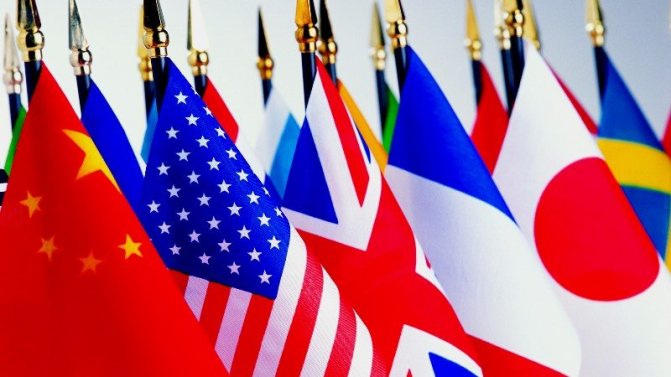
Pros and cons of relocation
There is good and bad in any action we commit, depending on what angle we look at it from. Also, complete resettlement has positive and negative factors for both the person and the country.
Advantages of migration for humans
- improving living standards;
- change of environment to acquire the desired profession.
Positive aspects of resettlement for the country
- obtaining the required workforce that does not need to be trained or used
- low paid positions;
- increase in the size of the state.
Disadvantages of migration for humans
- inability to get what you want due, for example, to lack of ownership
- national language, or insufficient qualifications to apply for a job with higher pay;
- Difficulty getting used to new customs and traditions.
Disadvantages of resettlement for the country
- loss of people needed by the state;
- decrease in population.
What are emigration and immigration? A comparison of the pros and cons of these two concepts is considered the main explanation for the above migration actions.
Anyone has the right to emigrate, but first you need to compare all the good and bad sides of this step. Just up and moving to another area is half the battle; you need to clarify in advance the likely percentage of a better life. To do this, the selected territory is first probed and studied from a socio-economic and political point of view. And the difference between emigration and immigration lies in the perspective of the action taken.
How is migration different from emigration?
Migration has always existed, as people are constantly in search of a better life. Migration is a broader concept; its essence is the movement of the population with the goal of changing a region or country. Scientists distinguish two types of migration: internal and external. In the case of internal migration, a person changes his place of residence within the country. For example, he leaves for a period of study in a neighboring region. The external one consists of a global move, that is, relocation from one state to another, and includes emigration and immigration.
See also: Everything about the US Green Card - what it provides, how to apply for it, the responsibilities of its owner
There are several immigration laws:
- the greatest number of migrations occurs over close distances;
- large territorial centers are more attractive for migrants;
- any migration flow is counterbalanced by a counter flow;
- the increase in population in large cities is largely due to migration;
- the growth of industry, the development of trade and transport in a region or state are a catalyst for migration;
- Economic reasons are paramount for migration.
What are the reasons for migration?
For internal migration, the main reasons are the search for a new job, the inability to obtain the necessary education in one’s region, the desire to improve living conditions and improve the standard of living in general.
The main reason for international migration now is the inability to receive wages that correspond to a person’s education and professional experience. It is extremely unpleasant for a qualified specialist to realize that in other countries workers in his field are paid several times more. Now the largest flow of qualified specialists comes from Eastern European countries to the USA and Canada, as favorable conditions have been created there for immigrants.
To some extent, wars also influence migration. Many emigrated from Iraq to Europe; now residents of Ukraine, due to the instability of the political situation, are increasingly leaving for Russia.
Important: each country has its own migration policy - a set of rules for entering its territory with the opportunity to legally live and work there.







